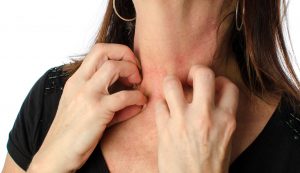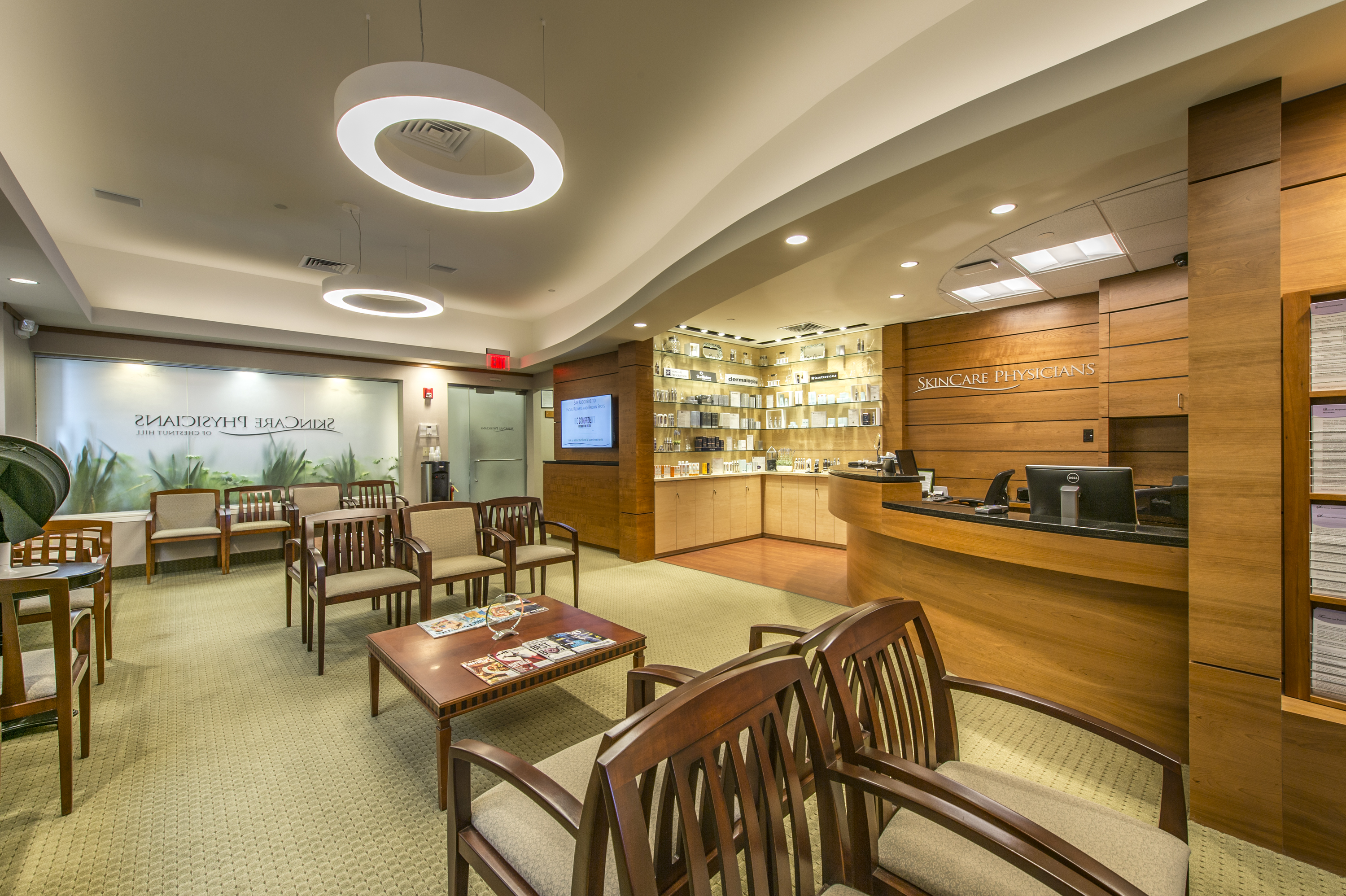- Home
- Blog
- Medical Dermatology
- Why does scratching our skin feel so good (and why it’s important to stop!)
Why does scratching our skin feel so good (and why it’s important to stop!)
 Have you ever heard a story about someone with head lice and then felt itchy for the rest of the day? There is a reason for this “contagious itching”! Researchers at Temple University* used functional magnetic resonance imaging (fMRI) to get some answers. fMRI offers a way to measure brain activity by detecting changes associated with cerebral blood flow. In patients who were chronically itchy (such as those with atopic dermatitis, or eczema) who were shown a video of people scratching, their brains lit up in the supplemental motor areas, an area that can prompt people to action, such as scratching. And these patients also reported feeling itchier overall.
Have you ever heard a story about someone with head lice and then felt itchy for the rest of the day? There is a reason for this “contagious itching”! Researchers at Temple University* used functional magnetic resonance imaging (fMRI) to get some answers. fMRI offers a way to measure brain activity by detecting changes associated with cerebral blood flow. In patients who were chronically itchy (such as those with atopic dermatitis, or eczema) who were shown a video of people scratching, their brains lit up in the supplemental motor areas, an area that can prompt people to action, such as scratching. And these patients also reported feeling itchier overall.
We all know that scratching itchy skin may produce a satisfying and pleasurable feeling. Why does something so damaging to the skin feel so good? And why do we sometimes feel even MORE itchy after scratching?
The same Temple University researchers also looked at this, using cowhage applied to patients’ forearms. Cowhage is an irritant that is a major component of practical joker’s itching powder! In chronically itchy patients who scratched the application sites, fMRI showed that certain parts of the brain associated with the reward circuit (striatum, cingulate cortex, caudate nucleus and orbitofrontal cortex) lit up. Among patients who did not suffer from chronic itching, these reward areas did not light up nearly as much. So, your brain is actually perceiving scratching as a reward, even though it can actually damage the skin!
Hopefully, understanding the neurologic basis of itching will lead to better treatments in the long run. Until then, patients and dermatologists work together to treat the underlying problems that are causing the itch, such as eczema, psoriasis, or allergy.
Scratching the skin produces a temporary sensation of relief, but in the long run, the sensation of itching may return and may be even stronger. Scratching the skin produces low level damage to the skin’s surface, and when repeated over time the damage to the skin’s barrier function may lead to infection. In addition, long term scratching or rubbing the skin can produce a skin condition called lichen simplex chronicus, or lichenification. This is a well-circumscribed area of thickened, darkened, hyperlinear skin that is persistently itchy. Dermatologists can offer treatments such as emollients, detection of specific contact allergens, and topical or systemic anti-inflammatory medications that treat the underlying cause of the itching.
* Journal reference: Hideki Mochizuki, Alexandru D P Papoiu, Leigh A Nattkemper, Andrew C Lin, Robert A Kraft, Robert C Coghill, Gil Yosipovitch. Scratching Induces Overactivity in Motor-Related Regions and Reward System in Chronic Itch Patients. Journal of Investigative Dermatology, 2015; DOI: 10.1038/jid.2015.223
You might also like:
Dry skin: Six easy steps to heal the winter itch



Leave a Reply